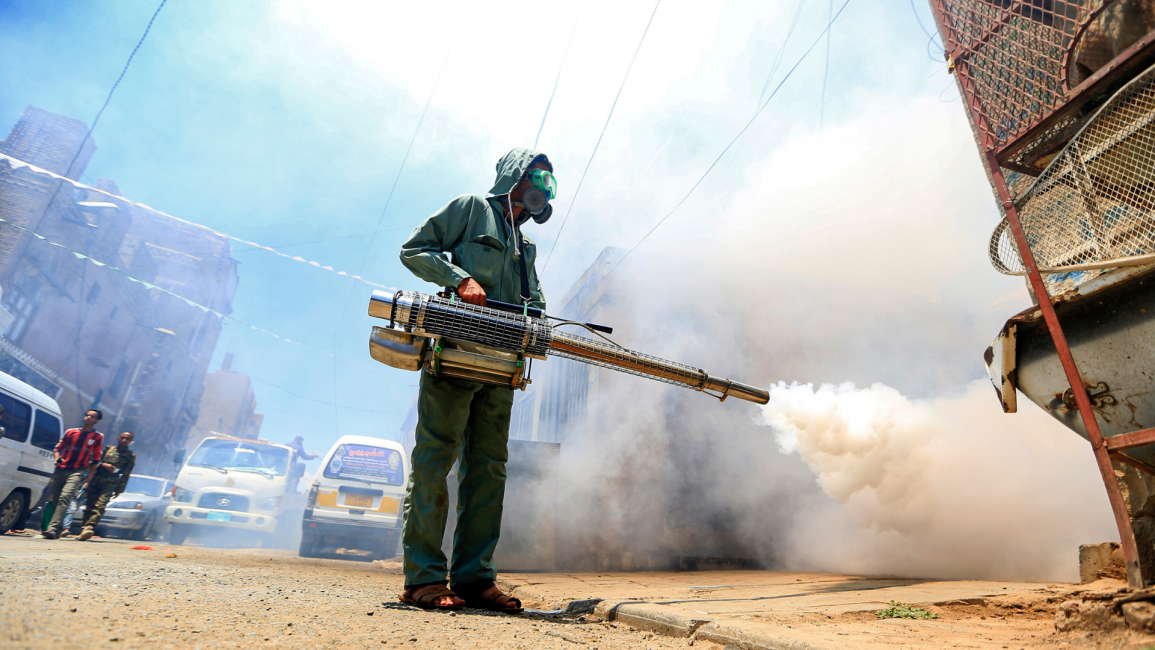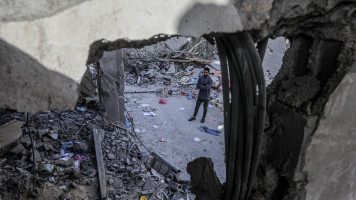BBC News Arabic documentary unveils Yemen's deadly Covid-19 battle
The documentary, which provides an exclusive insight into the dire circumstances in a country that has struggled to survive after nearly six-years of conflict, a dwindling economy and a lack of global support.
Presented by award-winning British-Yemeni journalist Nawal Al-Maghafi, the 'Yemen: Coronavirus in a Warzone' film showcases how both the Houthi rebels and the internationally-recognised government have failed to protect their citizens from the pandemic.
"In the rebel-held north, Nawal finds the Houthi government in denial about the Covid-19 crisis, while in the Saudi/UAE-backed south, she learns that Aden lost its only Covid ward because of infighting between officials and rivalry with foreign health workers," a statement from the BBC said.
Yemen has so far recorded more than 2,085 Covid-19 cases, including 606 deaths, so far but numbers are likely much higher, the UN says.
For months now, several UN agencies and rights groups have warned of dire repercussions in Yemen if the international community continues to ignore its pleas.
Earlier this month, UNICEF said Yemen, which plunged into chaos and civil war after Iranian-backed Houthi rebels captured the capital in 2014, may be the most challenging area for the UN agency.
Virtually all of Yemen's 12 million children require some sort of assistance, the agency said, noting this includes food aid, health services, clean water, schooling and cash grants to help the poorest families scrape by.
Twitter Post
|
"We are raising the alarm because we are on the edge of a precipice in Yemen," Ted Chaiban, UNICEF's director for the Middle East and North Africa said, with some 2 million children "acutely malnourished" and 5 million people on the brink of famine.
He said efforts by the UN and non-governmental organisations are keeping the country afloat.
"If that falls apart, then it all falls apart," he warned. "There's a train coming down the track. You know what the consequences of not acting is."
Meanwhile, the UN humanitarian coordinator for Yemen, Lise Grande, said the UN was alert to the challenges of delivering aid in Yemen.
"For every programme we have underway, we identify the risks to principled delivery," she told AFP. "When those principles are breached, we adjust our delivery - this means that we sometimes have to stop aid."
Earlier this year, she warned millions of Yemenis will "suffer and could die" because of a funding crisis that has forced the UN to close or slash half of its major programmes in Yemen.
Grande also said the aid situation was complicated after the Houthis closed Sanaa airport. The rebels have long threatened to shut down the facility to protest an air blockade by the Saudi-led coalition.
"Now with the airport in Sanaa closed, it makes an already extremely difficult task yet more difficult in terms of implementing a response," an aid worker, who spoke on condition of anonymity, told AFP.
"It's true in the south there are restrictions too, but... in the north, the amount of restrictions and their severity is exceptional."
In September, the United Nations went as far as rebuking Gulf nations for failing to follow through with their pledges to donate to the neighbouring country, where a Saudi-led coalition has been engaged in a deadly conflict with the Houthi rebels since 2015.
Human Rights Watch also warned of "deadly consequences" as a result of the obstruction of aid in war-torn Yemen, where the humanitarian effort has already been badly hit by the coronavirus crisis.
Interference by the government and Houthi rebels has hampered the delivery of aid in the country where the risk of famine looms large, the rights group wrote in a report.
Interviews with 35 humanitarian workers, 10 donor officials and 10 Yemeni health workers revealed a complex web of restrictions that hinder the flow of aid.
More than 100,000 people, mostly civilians, have been killed in the Yemen conflict, which the United Nations describes as the world's worst humanitarian crisis.
The United Nations warned in July that Yemen was at risk of returning to "the brink of a full-scale famine" as calls intensified for a ceasefire to help combat the novel coronavirus.
Long delays in approving aid projects, obstruction of aid surveys, and efforts to dictate allocation, alongside violence towards aid workers, all frustrated the flow of essentials, the report said.
Follow us on Facebook, Twitter and Instagram to stay connected



